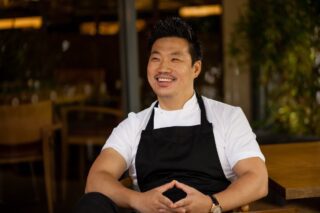This website uses cookies so that we can provide you with the best user experience possible. Cookie information is stored in your browser and performs functions such as recognising you when you return to our website and helping our team to understand which sections of the website you find most interesting and useful.
Chef’s Table: Sally Abé talks empowering women in the kitchen, mental health and her comfort favourites
By Shivani Dubey | 21 October 2024 | Food & Drink
Chef Sally Abé reveals her struggles with being a woman in the culinary industry and how Gordon Ramsay inspired her to be a mental health champion in the kitchen
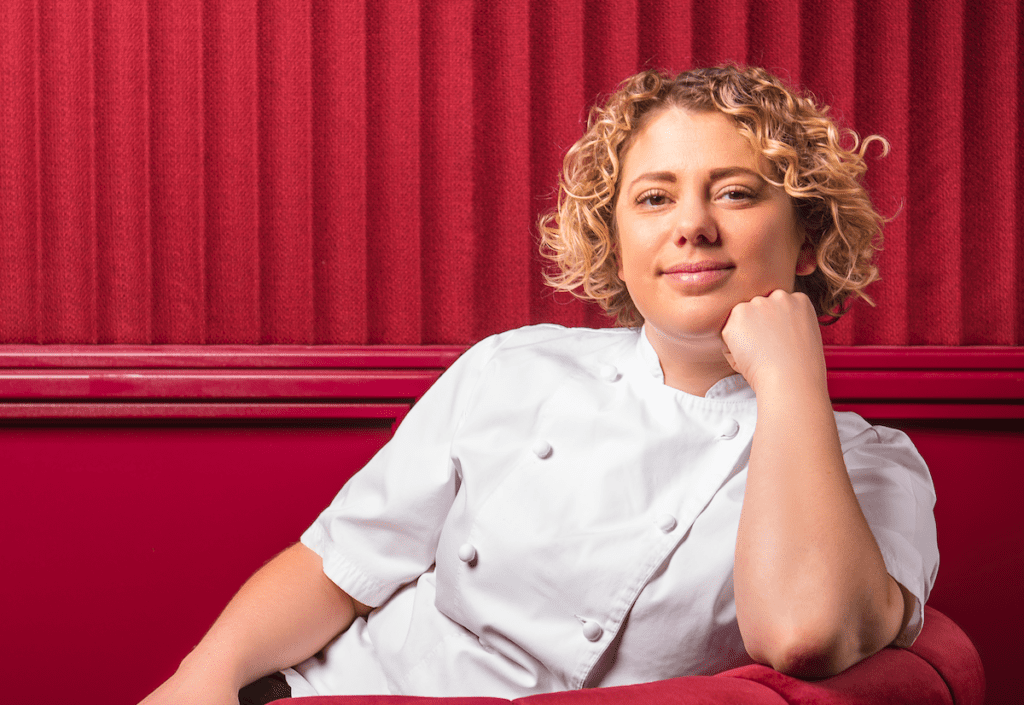 Chef Sally Abé wears many hats. She is the head chef over at The Pem, the fine dining restaurant nestled within Conrad St James in Westminster. She is an author, having released her debut book A Woman’s Place is in the Kitchen earlier this year, which details the many struggles she — and most women in the culinary industry — have faced over the years.
Chef Sally Abé wears many hats. She is the head chef over at The Pem, the fine dining restaurant nestled within Conrad St James in Westminster. She is an author, having released her debut book A Woman’s Place is in the Kitchen earlier this year, which details the many struggles she — and most women in the culinary industry — have faced over the years.
She is also a mentor and mental health advocate for women in the hospitality industry, using her platform to champion for equality, diversity and work-life balance in the culinary space. And to top it all off, she is an award winner who makes regular appearances on TV shows like Saturday Kitchen Live, James Martin’s Saturday Morning, and 2022’s Great British Menu.
Naturally, for the October edition of our Chef’s Table series, we decided to chat with Sally Abé about her life in the culinary industry. Here, she talks about the many hats she wears, why she chooses to use her platform to empower women, the time Gordon Ramsay helped her out of a burnout and her comfort foods.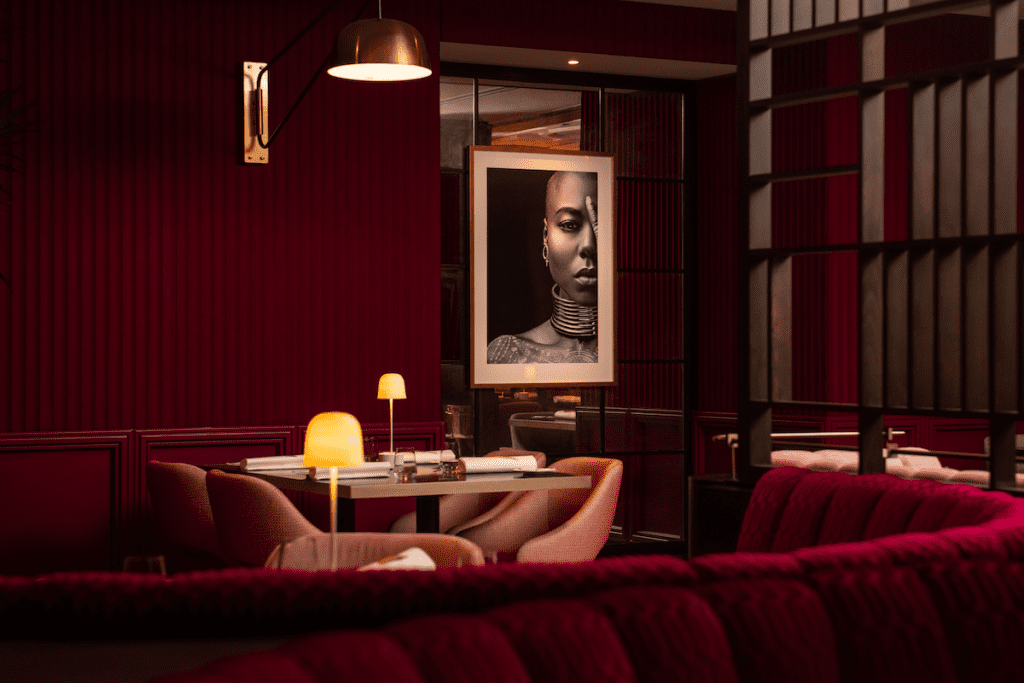 You head up The Pem within Conrad London St James’s. What sets your menu apart?
You head up The Pem within Conrad London St James’s. What sets your menu apart?
At The Pem, we’re all about celebrating British produce and seasonality, but with a modern, elegant touch. Each dish is thoughtfully crafted, combining unexpected flavours with a focus on simplicity and balance. I want our guests to experience something familiar but elevated—a comforting dish that surprises and delights them.
How would you describe your style as a chef? What do you want your guests to experience?
My style is rooted in simplicity and elegance, but there’s always an emphasis on seasonality. I believe in letting the ingredients speak for themselves. The focus is on balance—each element on the plate has a purpose. When guests dine at The Pem, I want them to feel both comforted and intrigued. It’s about delivering a sense of refinement without losing that essential warmth that makes a meal memorable.
You launched your debut book A Woman’s Place is in the Kitchen earlier this year. What made you want to write it?
The book felt like a natural next step in my journey as a chef. I’ve always believed in empowering women in the kitchen, and A Woman’s Place is in the Kitchen gave me the chance to share my story, insights, and the lessons I’ve learned along the way. It’s about showcasing the strength and resilience of women in this industry and celebrating their contributions. I wanted to create something that would inspire and encourage others to follow their path, just as I’ve been inspired throughout my career.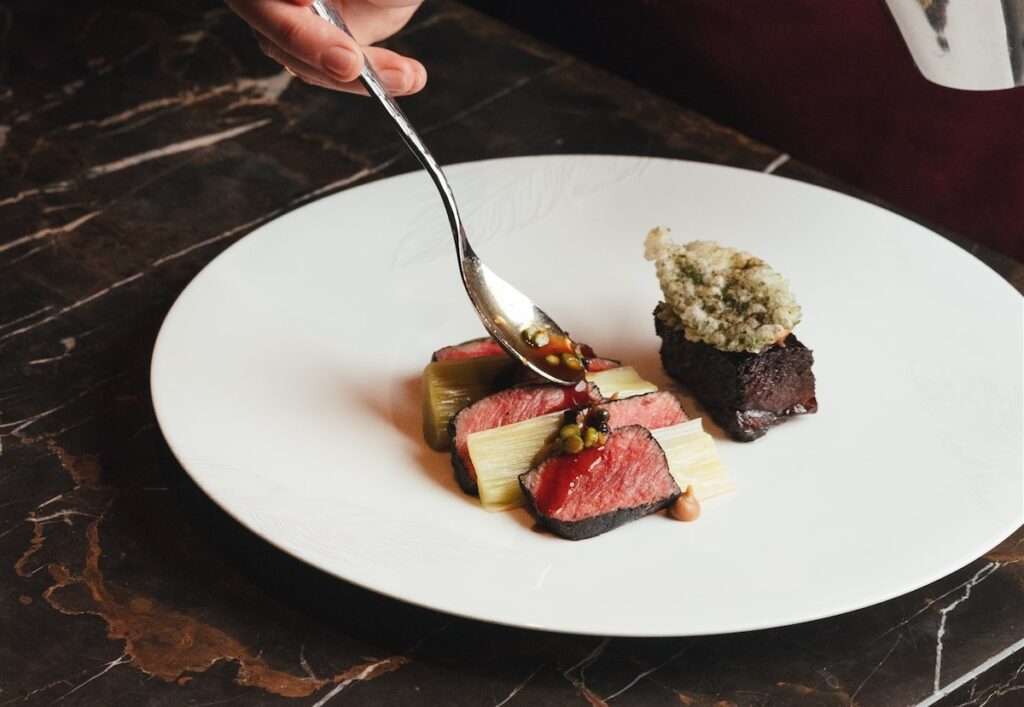 You’ve written a whole memoir about it, but as a woman in the culinary industry, what are some of the challenges that you have faced in your career?
You’ve written a whole memoir about it, but as a woman in the culinary industry, what are some of the challenges that you have faced in your career?
Early on, I often found myself as one of the few women in the kitchen, which meant having to work twice as hard to prove myself. However, I’ve learned to let my work do the talking. It’s been a journey of pushing through barriers, and creating spaces where women are valued and heard.
You have made it your mission to make the culinary world a safe and equal space for women to shine in—as a mentor and as a chef. Can you please talk a little bit about that?
It’s incredibly important to me to foster a kitchen environment where women feel empowered and supported. When I was coming up, female chefs were often in the minority, and there weren’t many role models to look up to. I’ve made it a priority to mentor young women and create opportunities for them in my kitchen. It’s about changing the culture from within, one kitchen at a time, and showing that inclusivity leads to creativity and success.
You have spoken in a previous interview about how Gordon Ramsay helped you out of burnout. How important was it to have a fellow chef/mentor reach out to you like that? And how do you apply those learnings to your own brigade while also maintaining such a high-pressure environment?
It meant the world to me to know that someone like Gordon cared enough to reach out during such a difficult time. His support reminded me of the importance of looking out for each other in this industry. Since then, I’ve made it a priority to check in on my team regularly. Kitchens are high-pressure environments, but we don’t have to go through it alone. If I can’t personally help someone on my team, I make sure they have access to someone who can. It’s all about creating a space where everyone feels supported, no matter how tough the day gets.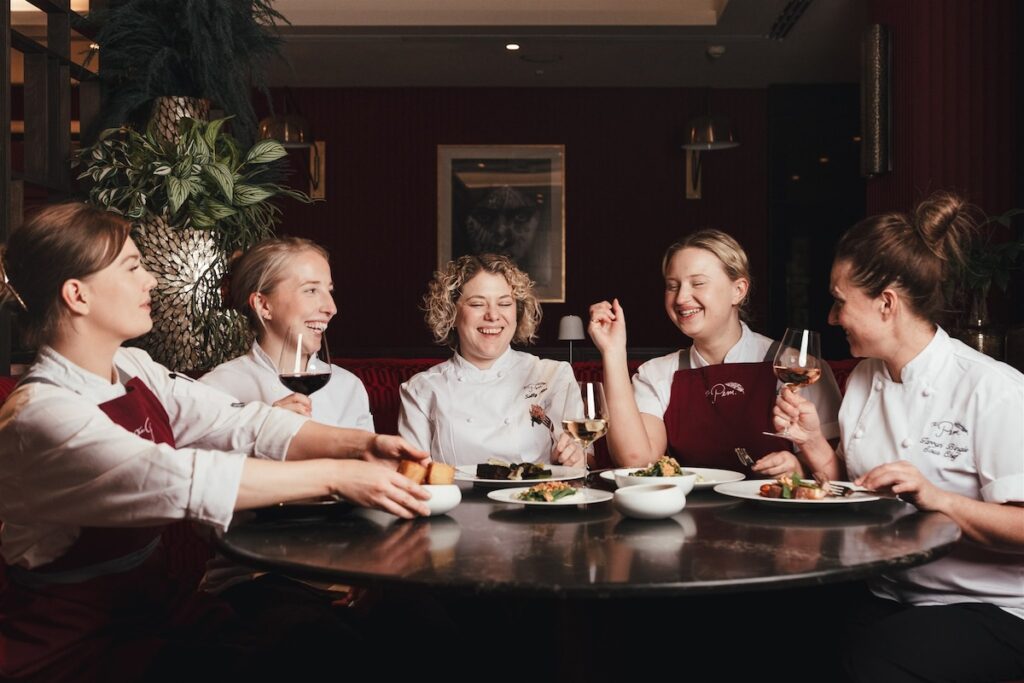 We always see high profile kitchens portrayed in films and TV shows like The Bear as extremely high-pressure—and at times, shouty—environments. Is that accurate, or have you noticed a change in the conversation around mental health in kitchens?
We always see high profile kitchens portrayed in films and TV shows like The Bear as extremely high-pressure—and at times, shouty—environments. Is that accurate, or have you noticed a change in the conversation around mental health in kitchens?
It’s accurate to an extent—there are still a lot of kitchens that operate with that kind of intensity. But the conversation around mental health is changing, and I’ve seen a positive shift, especially in recent years. Initiatives like The Burnt Chef Project are making a huge difference in raising awareness and creating healthier working environments.
What is your ultimate comfort food? What do you make for yourself at home after a long, gruelling day or week at your restaurant? Or simply on your days off?
My ultimate comfort food has to be cottage pie—anything with mashed potato, really! It’s hearty, satisfying, and reminds me of home. On my days off, though, I keep it simple—quick and easy meals like pasta or noodles. I must admit, I’m not a fan of washing up after a long day.
Why is this a comfort food to you? Do you have any special memories associated with the dish?
Cottage pie was a staple in our house growing up—we probably had it every week. It’s just one of those dishes that instantly feels warming and comforting.
If you don’t mind, can you share the recipe for this dish with our readers to emulate?
Absolutely! I recently posted a video of it on my Instagram, so you can check it out there. It’s a really simple recipe, but so satisfying. Do you have any tips for our readers attempting to recreate this dish?
Do you have any tips for our readers attempting to recreate this dish?
The key is to cook the stew long enough so that it becomes thick and rich. Patience is everything—it makes all the difference.
Who are some of your chef heroes?
I have so much respect for Angela Hartnett — she’s a true inspiration. And of course, Anthony Bourdain was a huge influence, as he was for so many chefs. His approach to food and life was really something special.
To know more about Chef’s Table and Sally Abé, subscribe to our weekly newsletter, the Tempus Edit, here. And read other interviews in our Chef’s Table series here.





